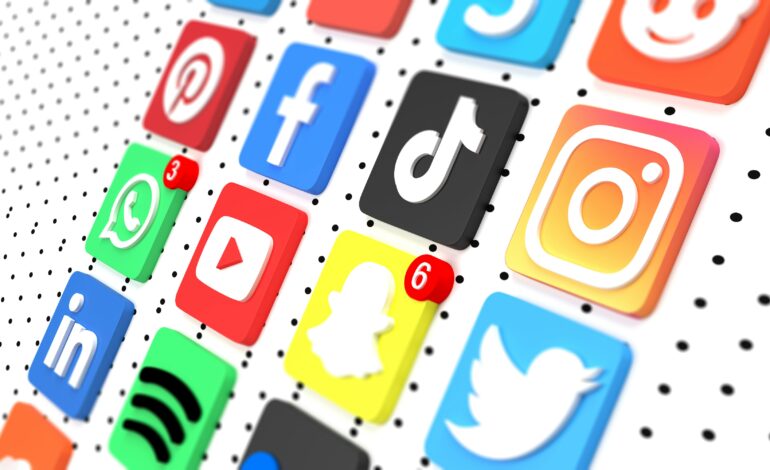
Popular Digital Marketing Platforms
Unlocking Growth with a Digital Marketing Platform
In today’s fast-paced digital landscape, businesses are constantly seeking smarter, more efficient ways to reach their audiences.This is where a digital marketing platform becomes essential.. Whether you’re a startup, a growing brand, or an established enterprise, the right platform can transform how you engage with customers, track success, and scale your marketing strategies.
But what exactly is a digital marketing platform, and how can it benefit your business? Here’s everything you need to know.
What Is a Digital Marketing Platform?
A digital marketing platform is a suite of integrated tools that help businesses execute, manage, and analyze digital campaigns across multiple channels. These platforms typically include functionalities like email marketing, social media scheduling, SEO tools, analytics dashboards, automation features, and more.
Rather than juggling multiple software tools, a comprehensive platform brings everything into one centralized interface—allowing marketers to streamline their workflows and improve efficiency.
Key Benefits of Using a Digital Marketing Platform
Choosing the right digital marketing platform can significantly boost your marketing results. Here are some of the main benefits:
1. Centralized Campaign Management
Managing campaigns across different channels like Google Ads, Facebook, and email can be chaotic. A digital marketing platform helps consolidate everything into a single dashboard, reducing complexity and saving time.
2. Real-Time Analytics and Insights
These platforms offer robust tracking tools, allowing you to measure campaign performance in real time. You can see which channels are performing best, analyze user behavior, and tweak strategies on the fly.
3. Marketing Automation
Automation is one of the biggest time-savers. A digital marketing platform enables automatic email sends, social media posts, and lead nurturing sequences based on user actions—helping you maintain engagement 24/7 without manual effort.
4. Improved Collaboration
Most platforms support multiple user roles and permissions, making it easier for teams to collaborate across departments, from marketing and sales to customer service.
5. Better ROI Tracking
Understanding return on investment is critical for any business. These platforms offer attribution models and performance reports that give a clear picture of what’s working and what isn’t.
Key Features to Consider in a Digital Marketing Platform
Not all platforms are created equal. When selecting the best tool for your business, look for these essential features:
-
Multi-channel integration: Support for email, social media, search engines, and display ads
-
Custom analytics: Detailed reporting tailored to your KPIs
-
CRM integration: Syncs with your sales and customer service tools
-
Automation workflows: Easily create complex triggers and actions
-
Scalability: Can grow with your business needs
The right digital marketing platform should be user-friendly, customizable, and backed by strong customer support.
Popular Digital Marketing Platforms in 2025
Here are some top-rated platforms businesses are using in 2025:
-
HubSpot – Great for inbound marketing and CRM integration
-
Mailchimp – Known for email automation and simple design tools
-
SEMrush – Focused on SEO, competitive analysis, and content marketing
-
Hootsuite – A social media marketing powerhouse
-
ActiveCampaign – Excellent automation features for lead nurturing
Each digital marketing platform has its own strengths, so the best choice depends on your specific goals and team size.
Trends Shaping Digital Marketing Platforms in 2025
To future-proof your marketing, stay aware of these platform trends:
-
AI and Predictive Analytics – Tools now suggest the best times to post, highest-converting content, and even generate copy using AI.
-
Voice Search Optimization – Platforms are starting to support content tailored for voice search queries.
-
Privacy-Centered Marketing – With growing regulation, platforms now include better consent management and user data controls.
-
Omnichannel Automation – Email, push notifications, chatbots, SMS, and even WhatsApp are part of unified workflows.
-
First-Party Data Collection – Platforms help collect and use data directly from your
How to Choose the Right Platform for Your Business
When evaluating platforms, consider your marketing goals, budget, and team capabilities. Here are some quick tips:
-
Define your needs: Are you focused on email, SEO, PPC, or social media?
-
Test the UX: Try out free trials to gauge ease of use.
-
Check integrations: Make sure the platform works well with your existing tools.
-
Evaluate customer support: Responsive support is crucial when issues arise.
-
Look at pricing tiers: Don’t just go for the cheapest—make sure it delivers value.
Choosing the right digital marketing platform is not a one-size-fits-all decision. The more aligned it is with your workflow, the better your results will be.
Pro Tip: Pair Platforms with Strategy
While choosing the right digital marketing platform is important, pairing it with a smart content and targeting strategy is what delivers real impact. A platform is only as powerful as the campaigns you run through it.
Here are a few strategy tips:
-
Create audience personas to guide content creation
-
Use behavior-based triggers for email and SMS
-
Combine organic and paid marketing in your platform dashboards
-
Review analytics weekly to optimize campaigns
-
Keep testing subject lines, content formats, and CTAs
FAQ: Digital Marketing Platform
1. Why do businesses use a digital marketing platform?
The main purpose is to streamline and automate marketing tasks across different channels, saving time and increasing campaign effectiveness.
2. How is a digital marketing platform different from a marketing tool?
A marketing tool often serves one function (e.g., email sending), while a platform integrates multiple tools under one roof for comprehensive campaign management.
3. Is a digital marketing platform suitable for small businesses?
Absolutely. Many platforms offer affordable packages for small businesses with limited budgets and smaller teams.
4. Do I need technical skills to use a digital marketing platform?
Most platforms are designed with user-friendly interfaces. While some advanced features may require a learning curve, most users can get started with minimal training.
5. Can a digital marketing platform improve ROI?
Yes. By improving targeting, reducing manual work, and offering insights into campaign performance, these platforms often lead to better ROI.
Final Thoughts
In a digital-first world, businesses can’t afford to rely on outdated or disjointed tools. A robust digital marketing platform not only saves time and money but also enhances customer engagement and drives long-term growth. With so many options available, the key lies in finding the platform that aligns with your strategy and scales with your business.
By investing in the right digital marketing platform today, you’re setting your business up for smarter, more effective campaigns tomorrow.






